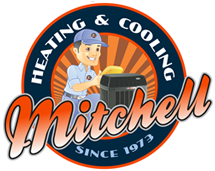5 Simple Steps to Drastically Reduce Indoor Air Pollution
Yes, unfortunately, every home has pollution in the air, some worse than others. The American College of Allergists reported that 50% of all illnesses are either caused by or aggravated by polluted indoor air. Since spring and the warmer weather are rapidly approaching, and along with it the pollen, mold and mildew growth, sneezing, headaches, and sore throats, we must make our homes healthy and ready for this annual battle.
Further, every seasonal change in the Wake Forest area greatly increases the chances of allergies in our families due to the changing weather and the effects it has on our environment and our bodies.
Our largest problem in the spring is pollen. Pollen is the bright yellow grains that cover everything in this area and are released by trees, flowers, grass, weeds, etc. There is no way to stop this annual process, but we can reduce the pollen levels in our homes and the impact on our overall health.
First, have your HVAC system serviced annually. The North Carolina Alternative Energy Corporation found that 90% of HVAC systems tested exhibited some sort of “energy-wasting, comfort-robbing problem!” Your air conditioner will operate roughly 1,239 hours during the cooling season. This is the equivalent of driving your car at 60 mph between Raleigh and San Francisco 26 times. We certainly would not drive a car that far without checking the oil, tires, gas, etc. However, we do this every year with our air conditioners.
During this service, the technician can verify the efficiency of the air conditioner and make improvements as needed. If the air conditioner is going to operate 1,239 hours, we definitely want to make sure it is efficient and effective.
Second, have the ductwork inspected for damage and deficiencies. Our technicians routinely find ductwork in the crawlspaces and attics broken, disassembled, damaged by animals, and leaking. The Department of Energy estimates that typical HVAC systems lose 25% to 40% of the conditioned air that is flowing through them. If the leaks are on the supply side, we are attempting to cool off the attic or the crawl space. Worse, if the leaks are on the return side, we are pulling pollutants (dust, pollen, mold, mildew, etc.) from the crawl space or the attic into our homes. Most of us don’t even want to go into the crawl space, yet we are breathing the dirty air from that area via the duct leaks.
Third, change your air filters regularly. Air filters only collect debris from the air inside our homes when the air conditioner is operating. Therefore, as the heat rises outside, the air filters will get dirty more frequently. Dirty air filters also decrease the efficiency of the air conditioner. We recommend that you inspect your air filters monthly to assess their condition. We recommend that you replace your air filters every 45 to 60 days or more frequently if you have indoor pets or families with allergies. Further, we recommend whole-house electronic air cleaners like the Trane CleanEffects for those homes with indoor pets or children with allergies.
Fourth, have your home evaluated for infiltration (leaks) in the windows, doors, walls, floors, etc. The Energy Audit will give you a much better understanding of how much unconditioned and unfiltered air is coming into and leaking out of your home. Finding these leaks and having a plan to stop these leaks is critical to improving your home’s health and reducing the cost of heating and cooling your home. Consumer Reports recommends using an energy auditor certified by the Building Performance Institute.
Fifth, consider an Energy Recovery Ventilator to bring fresh clean air into your home. An ERV recovers the energy from the exhaust air to condition the fresh air coming into the home. The ERV also filters the air to remove airborne pollutants. As you turn on your bath fans and your stove fan to remove moisture and odors from the home, the makeup air coming into the home to balance this exhaust is coming through the cracks and leaks that we previously mentioned. An ERV will condition and filter this makeup air to keep your home healthier.
Please feel free to contact Mitchell Heating & Cooling at 919.948.3263 if you have any additional questions or concerns about your home’s HVAC system.
-Allen Mitchell is Mitchell Heating & Cooling’s Mechanical, Electrical, and General Contractor license holder. He is NATE Certified, BPI Certified, and IGSHPA Certified; and is a qualified member of IEEE, ASHRAE, and ACCA. Mitchell Heating & Cooling is an award-winning Trane Comfort Specialist, receiving awards from Trane, Angie’s List, and the Wake Weekly.
